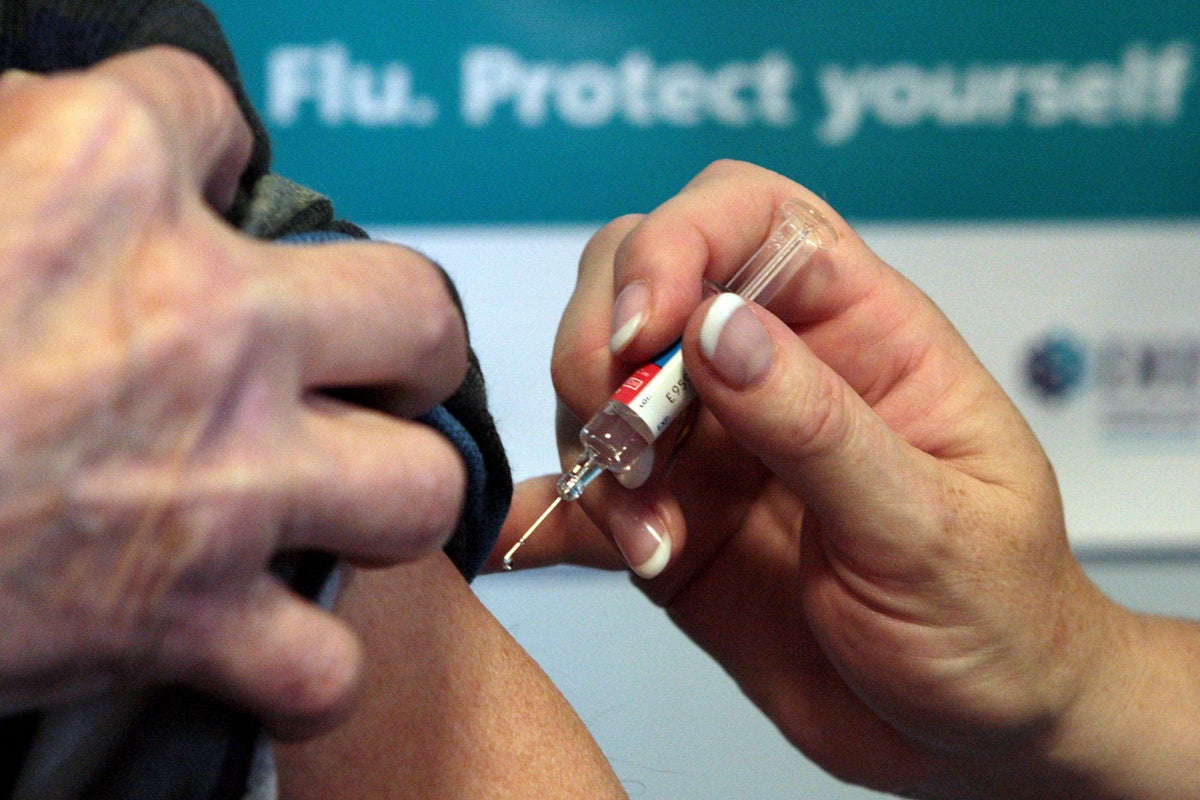
The number of flu patients in hospital in England has fallen for the first time this winter, in a sign the current wave of infections may have peaked.
An average of 5,262 flu patients were in hospital beds each day last week, down 3% from 5,441 the previous week, according to data from NHS England.
At this point last winter, the figure stood at just 48.
The average number of flu patients in general hospital beds in the seven days to January 8 was 4,914, down from 5,105 the previous week, although the average for critical care beds was 349, up slightly from 336.
Flu admissions to hospital have also fallen, with a rate of 6.4 per 100,000 people last week, down sharply from 11.2 per 100,000.
Admissions remain highest among the oldest age groups, at 46.5 for people aged 85 and over and 23.7 for 75 to 84-year-olds.
The overall rate of flu admissions to hospitals in England reached its highest level for a decade in the week before Christmas, overtaking the rate for people with Covid-19.
Both rates are now falling, with flu (6.4 per 100,000) now below the equivalent rate for coronavirus (9.1).
Steve Russell, NHS director of vaccinations and screening for England, said more than 20 million flu vaccine jabs had been delivered by the health service this winter, providing “crucial protection to the most vulnerable in our society”.
But he warned “we are still in the eye of the storm”, highlighting the rise in the number of flu patients in critical care beds.
He added: “The message is clear – if you are eligible for a vaccination and yet to come forward, I would strongly urge you to join the millions who have already had theirs and book your winter jabs through your GP, local pharmacy or on the National Booking Service, and protect yourselves and your loved ones from serious illness.”
Some 33 million people in England are eligible for a free flu vaccine this winter, including everyone aged 50 and over, all primary-age children and some secondary-age children.
The vaccine is also being offered to pregnant women, people in care homes, frontline health and social care staff, carers, those aged six to 49 with a specified health condition, and household contacts of people with weakened immune systems.







